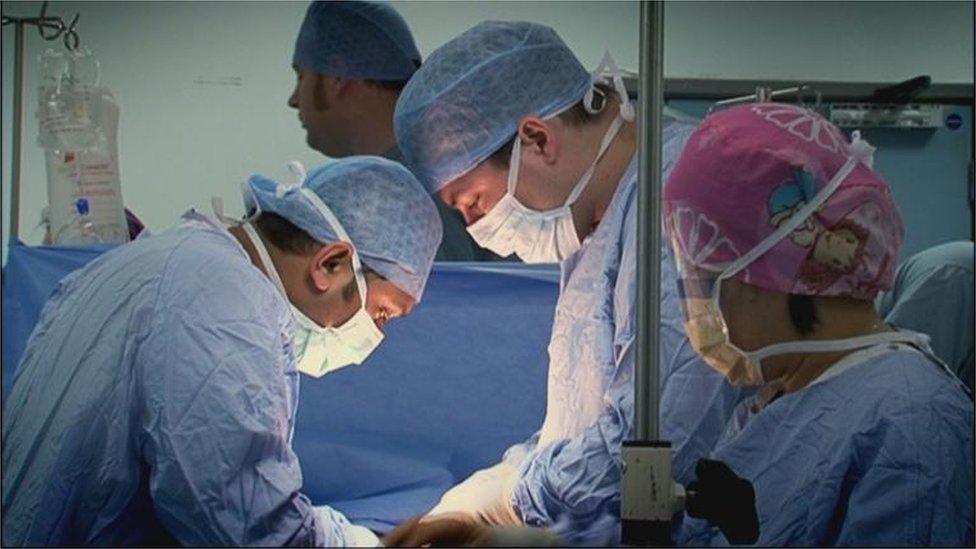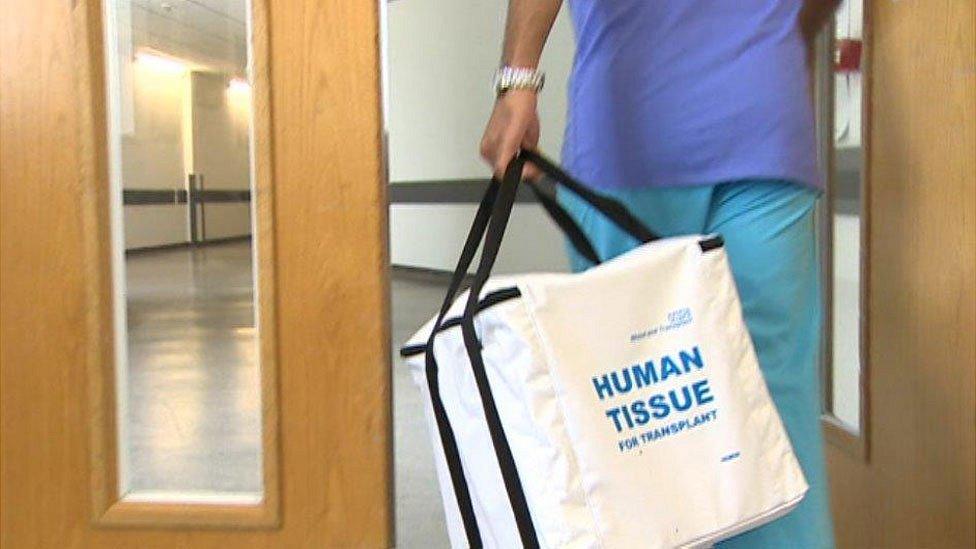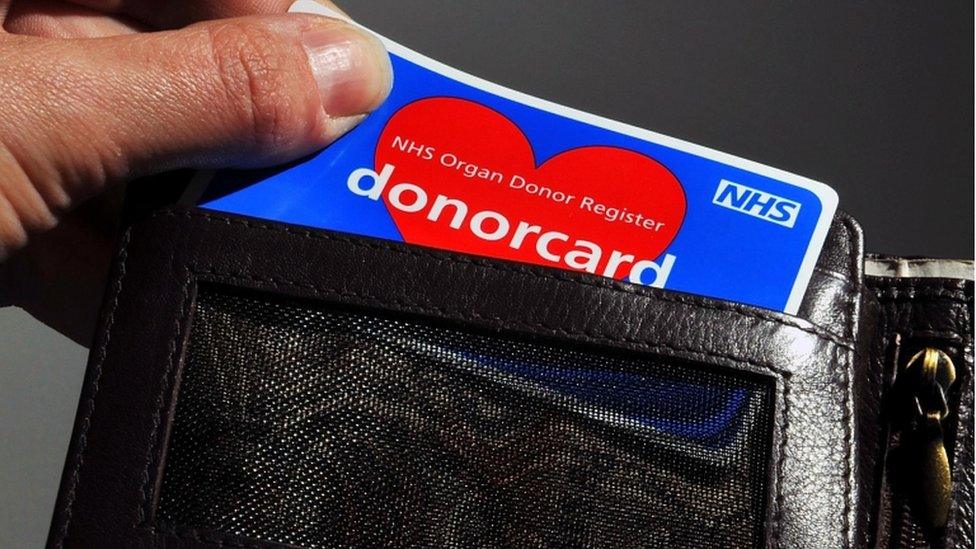Holyrood committee opposes organ opt-out plan
- Published

Many people still die while waiting for a transplant due to a lack of donors
A Holyrood committee has said it does not support legislation aimed at introducing an "opt-out" organ donation system.
Anyone who wants to donate their organs after death currently has to "opt-in" through the donor card scheme.
The Transplantation Bill, external would see body parts automatically available for transplant unless the person objected during their lifetime.
The Health Committee, external said it backed the aim, but not the detail, of the bill.
The legislation was introduced as a members' bill by Scottish Labour MSP Anne McTaggart.
Its supporters argue that the bill would increase the number of organs available for transplants, and therefore reduce waiting times and save lives.
But the committee said the majority of its members believed there was not enough clear evidence that changing to the specific opt-out system proposed by the bill would increase the number of donations.
However, it also said there "may be merit" in developing a "workable" opt-out system.
It called on the Scottish government to carry out a detailed consultation on methods of increasing organ donations, including opt-out, in the next parliament, and to consider legislating itself.
The committee also said some of its members did support the general principles of the bill and and felt that it needed to be introduced now.

The number of people registered as organ donors has increased in Scotland over the past decade
Committee convener Duncan McNeil said the committee recognised the "devastating impact on all aspects of family life of those who are waiting for donated organs".
He added: "As a committee we have to consider all the evidence placed in front of us and it was clear that there are differing views about the best way to increase donation rates.
"While the committee supported the aim behind the legislation, a majority couldn't support the detail."
The bill proposes a move to a "soft opt-out" system which would allow parts of a dead adult's body to be used in transplants in the absence of express permission.
Not enough
It would still be possible for people to opt-in to organ donation, but the bill would also give adults the option of appointing someone to make a decision about authorisation on their behalf.
They would also be able to register in advance that they do not want their organs or tissue to be removed.
Scotland has increased the number of organ donations over the past decade, with 41% of people now on the Organ Donor Register.
However, there are still not enough donated organs to save the lives of everyone who needs a transplant.

Body parts can currently only be removed from people in Scotland who signed up for the organ donation scheme before their death
BMA Scotland, which represents doctors, said it was disappointed by the committee's conclusions.
Dr Sue Robertson, a kidney doctor in Dumfries, said: "If properly implemented, with adequate resources and staff, and backed up by a high-profile publicity campaign, an opt-out system could save or transform peoples' lives.
"All the time we waste now means that more lives will be lost."
Wales introduced an opt-out system in December of last year, following many European countries including Spain, France, Belgium, Poland, Portugal, Sweden and Norway.
The Scottish government has previously said it would consider an organ donation opt-out if the Welsh scheme went well.
But Health Minister Maureen Watt has also expressed concerns about the bill put forward by Ms McTaggart.